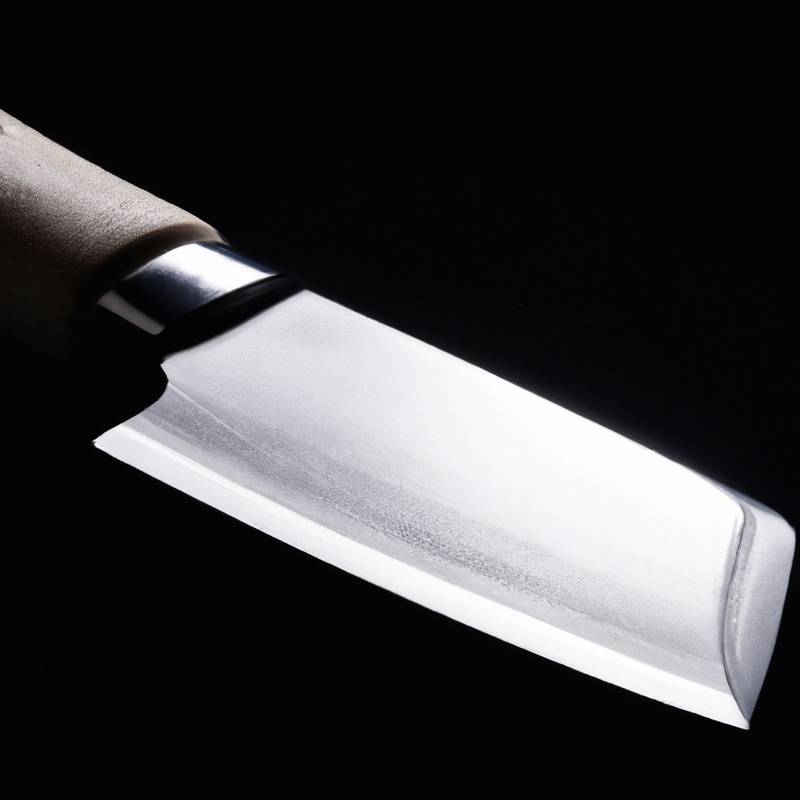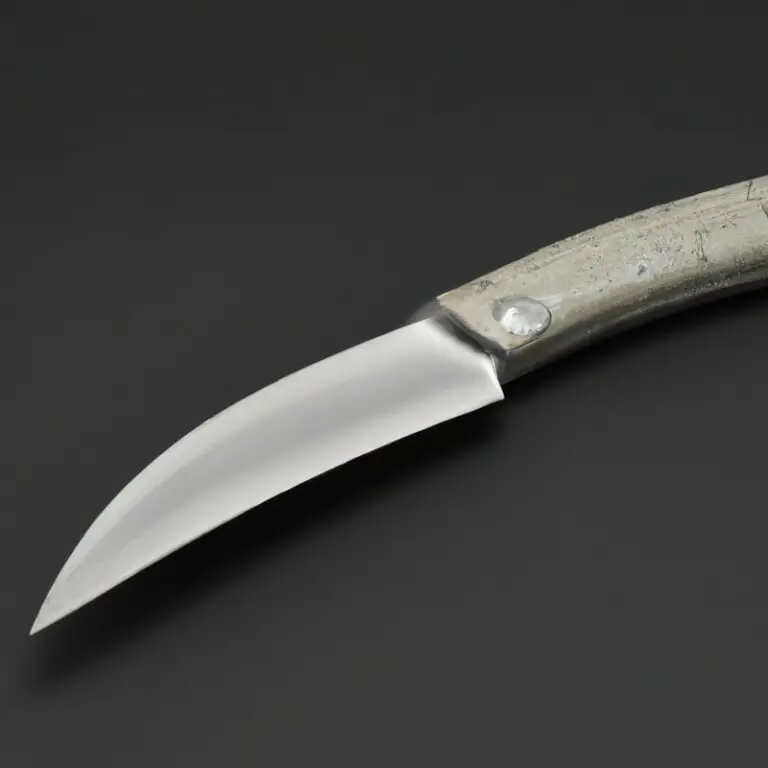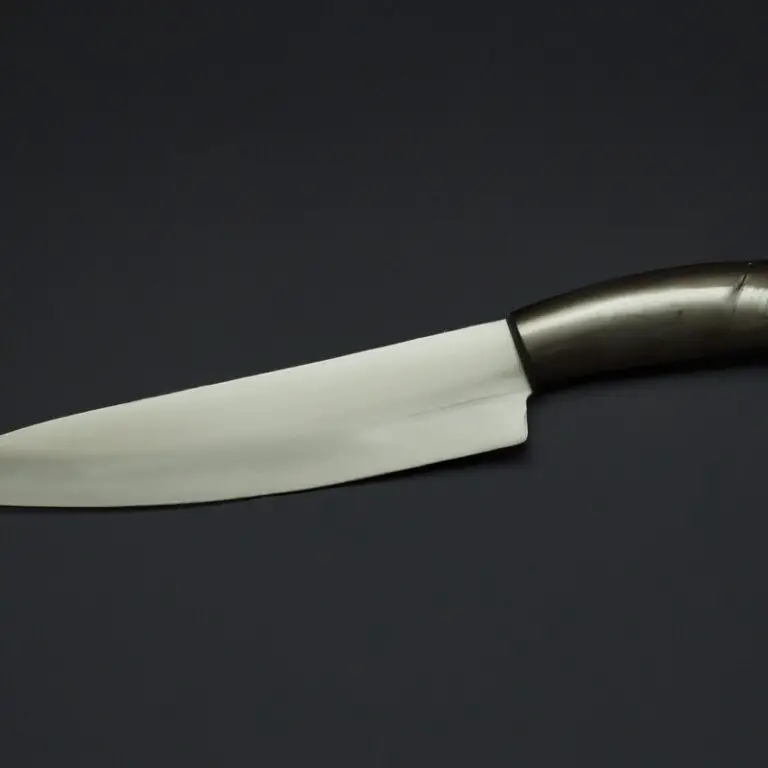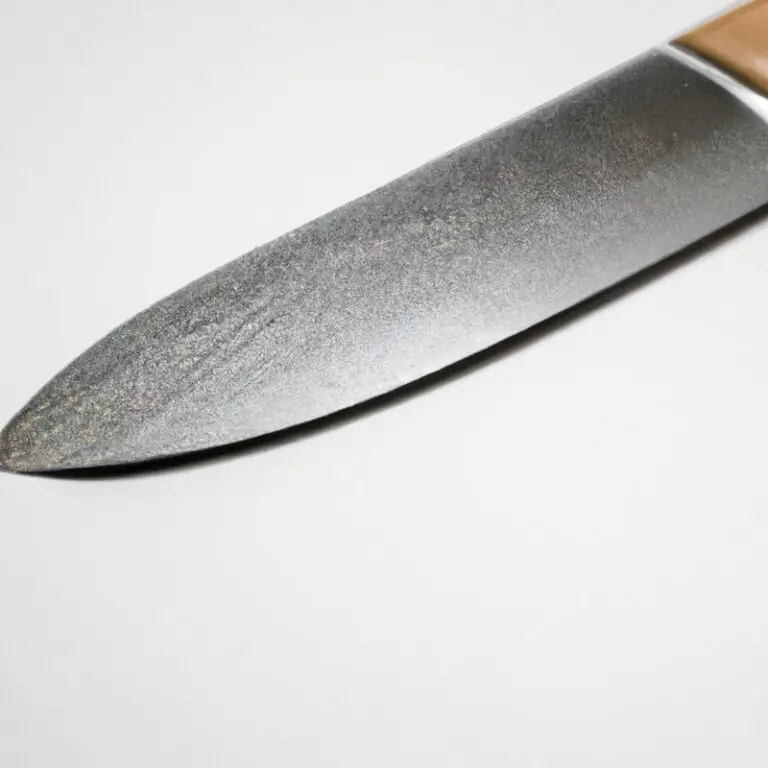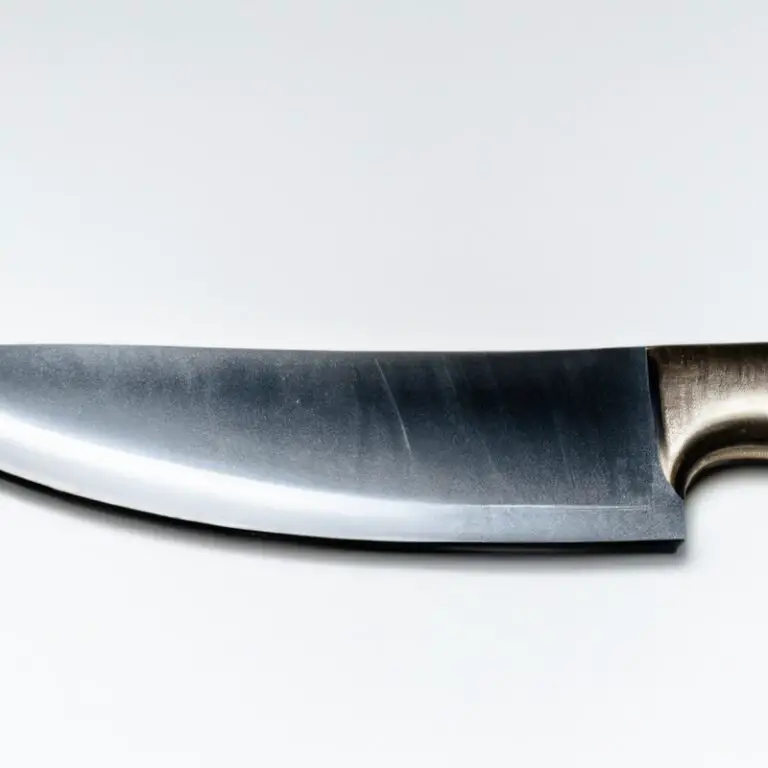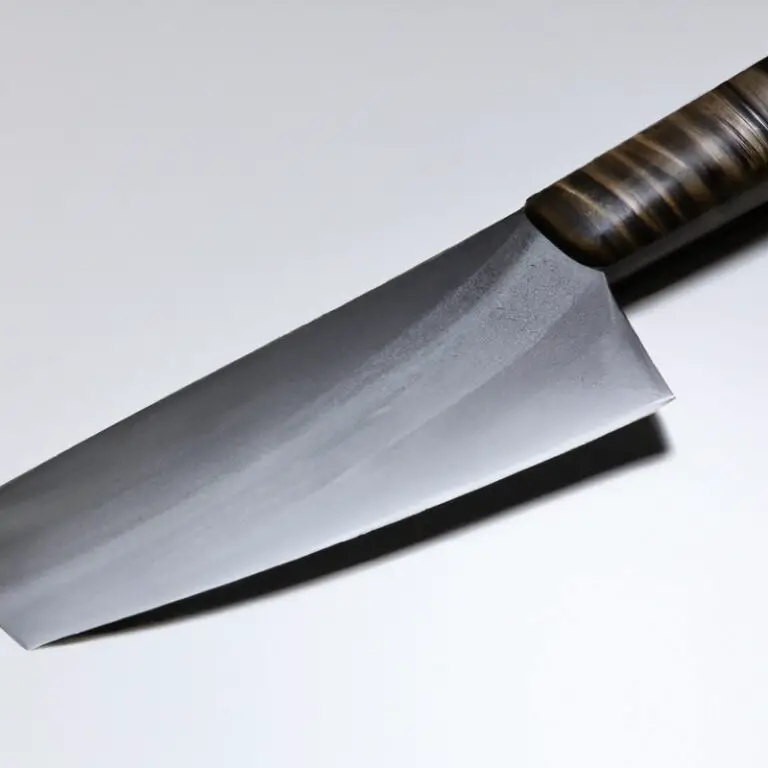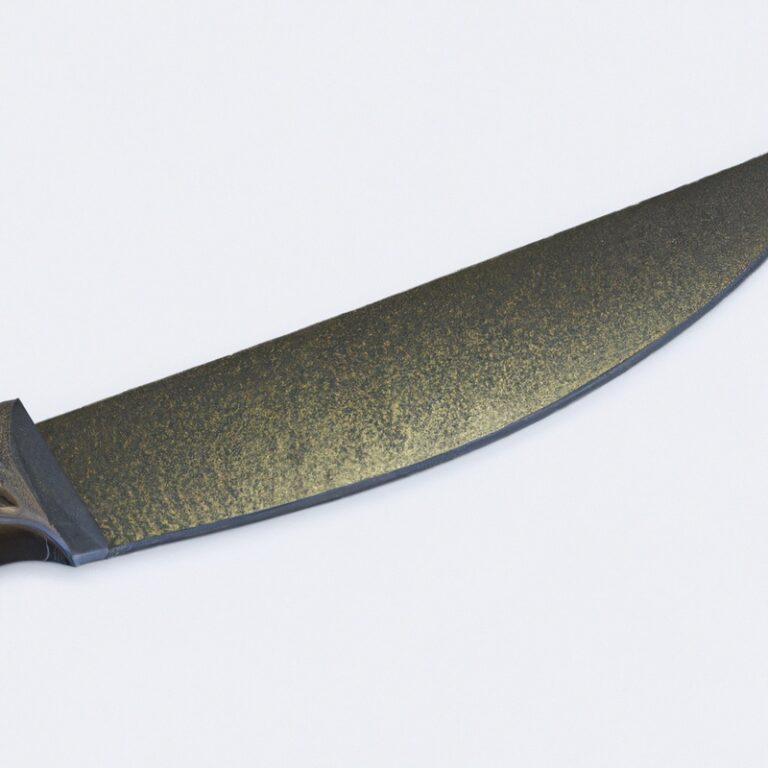How To Prevent Cross-Contamination When Using a Gyuto Knife? Master It Now!
Key Takeaways:
- Always keep your Gyuto knife clean and sanitized to prevent cross-contamination.
- Use a separate cutting board for meat and vegetables to avoid mixing bacteria.
- Ensure proper handling techniques, such as not using the same hand to touch raw meat and other ingredients.
- Regularly sharpen your Gyuto knife to prevent slipping and reduce the risk of injury.
Are you aware of the risks of cross-contamination when using a Gyuto knife in the kitchen? As a culinary enthusiast, I have come to understand the importance of maintaining a clean and hygienic workspace.
However, mastering this task can be a bit challenging, especially when using knives like the Gyuto.
In this article, I’ll share some effective tips that will help you prevent cross-contamination when using a Gyuto knife. From proper handling techniques to implementing separate cutting boards, you’ll learn how to maintain a safe and organized workspace.
Read on to discover the best practices and take your kitchen hygiene to the next level.
| Steps to Prevent Cross-Contamination when Using a Gyuto Knife |
|---|
| 1. Wash your hands, the knife, and the cutting board before starting to prepare food. |
| 2. Use different cutting boards for different types of food (meat, fruits, vegetables, etc.) to avoid cross-contamination. |
| 3. Keep the gyuto knife clean and sanitized at all times. |
| 4. Store the knife separately from other utensils to prevent contamination. |
| 5. Use a separate gyuto knife for meat and vegetables to avoid cross-contamination. |
Understanding Gyuto knives and their importance in the kitchen
Gyuto knives are Japanese-style chef knives widely used in kitchens for their versatility and precision. These knives have a lightweight and thin blade, making them ideal for slicing, dicing and chopping vegetables, fruits, and meats.
Due to their sharpness and ease of use, Gyuto knives are a staple for home cooks and professional chefs alike.
It is important to understand proper Gyuto knife usage to prevent cross-contamination in the kitchen. Cross-contamination occurs when bacteria spreads from one food item to another via contact with surfaces or improperly cleaned utensils.
Using a Gyuto knife to cut raw meats and then slicing vegetables without properly cleaning the knife can introduce bacteria to the produce and potentially cause foodborne illnesses.
Therefore, it is essential to use separate cutting boards for different food types and to clean your Gyuto knife appropriately after each use. Proper handling, cleaning, and storage of your Gyuto knife helps prevent the spread of harmful bacteria and ensures food safety.
Additionally, using protective gear such as gloves can further reduce the risk of cross-contamination.
Proper training of kitchen staff on preventing cross-contamination and implementing a clean and organized workspace is also crucial. In conclusion, understanding the importance of Gyuto knives and their proper usage is key in preventing cross-contamination and ensuring food safety.
The risks of cross-contamination when using a Gyuto knife
Cross-contamination while using a Gyuto knife can result in the spreading of harmful bacteria from one surface to another, leading to the contamination of food and increasing the risk of foodborne illnesses. If a Gyuto knife is used to cut meat and then used to chop vegetables without proper cleaning, the bacteria from the meat can spread to the vegetables, leading to potential food poisoning.
Additionally, dull knives can make it difficult to make clean cuts, and when food is not cut cleanly, it can lead to further contamination.
Therefore, it is crucial to be aware of the risks of cross-contamination when using a Gyuto knife and take appropriate measures to prevent it.
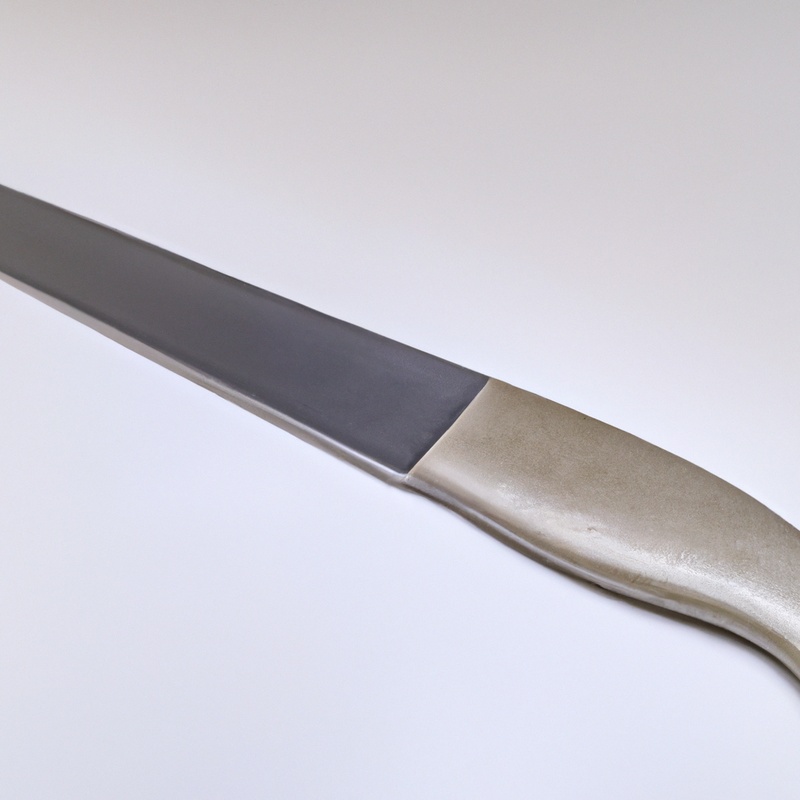
Proper handling and cleaning techniques to prevent cross-contamination
To prevent cross-contamination, proper handling and cleaning techniques should be followed when using a Gyuto knife. It is essential to wash your hands thoroughly with soap and hot water before handling food and your knife.
Clean the knife with soap and hot water after each use and dry it completely.
Avoid using sponges or towels to clean the blade as they can harbor bacteria. Use separate cutting boards for different types of foods such as raw meat, vegetables, and fruits.
Ensure that the cutting boards are washed with soap and hot water after each use and disinfected regularly.
Keep your workspace clean and organized, and never leave food or scraps on the cutting board or counter. Finally, store your Gyuto knife in a clean and dry place to prevent bacterial growth.
By following these simple steps, you can significantly reduce the risk of cross-contamination and keep yourself and your customers safe.
The importance of using separate cutting boards for different food types
Using separate cutting boards for different food types is crucial in preventing cross-contamination when using a Gyuto knife. Different food types, such as raw meat and fresh produce, carry different types of bacteria that can spread to other foods when cut on the same surface.
This can cause foodborne illnesses and is especially dangerous for individuals with weakened immune systems.
By using separate cutting boards for different food types, you can reduce the risk of cross-contamination and ensure the safety of your meals. It is important to label or color-code your cutting boards to avoid confusion and make it easier to keep track of which board is designated for which food type.
Make sure to also clean and sanitize your cutting boards after each use to further prevent the spread of bacteria.
Taking these simple steps can go a long way in promoting the health and safety of you and your loved ones.
Maintaining a clean and organized workspace to reduce cross-contamination
Maintaining a clean and organized workspace is key to preventing cross-contamination when using a Gyuto knife. This means regularly cleaning and sanitizing all surfaces, utensils, and equipment to ensure that harmful bacteria do not spread to different food types.
It is also important to keep raw meats, seafood, and poultry separate from ready-to-eat foods and to use separate cutting boards for each food type.
This avoids the risk of cross-contamination and reduces the chances of foodborne illness. In addition to keeping a clean workspace, it is best practice to wash your hands regularly and wear gloves when handling food.
Finally, all tools, including Gyuto knives, should be sharpened regularly and stored properly to prevent contamination.
Maintaining a clean and organized workspace is a mandatory practice for any professional kitchen, and personal hygiene is a must-have quality for a chef. It is a simple but effective way of preventing cross-contamination and ensuring the safety of your customers.
When to sharpen or replace your Gyuto knife to prevent contamination
To prevent cross-contamination when using a gyuto knife, it is important to sharpen or replace the knife when necessary. A dull blade can cause uneven cuts, which can make it difficult to properly cook food and may increase the risk of transferring bacteria between different food items.
Professionals suggest sharpening the blade every few months or as needed, and replacing the knife when it becomes damaged or worn out beyond repair.
It is important to regularly inspect the blade for any signs of damage such as cracks or chips, and to replace the knife immediately if such damages are noticed. Taking these simple steps can help to ensure that your gyuto knife remains a safe and effective tool in your kitchen.
Using protective gear such as gloves to reduce the risk of cross-contamination
Using protective gear such as gloves is an effective way to reduce the risk of cross-contamination when using a Gyuto knife. Gloves act as a barrier between the food and the hands, preventing the transfer of harmful bacteria.
When gloves are worn, it is important to change them regularly to avoid spreading contamination.
Gloves should also be appropriate for the task at hand, such as wearing cut-resistant gloves when using a sharp knife. Keep in mind that gloves are not a substitute for proper hand washing and sanitizing.
Even when wearing gloves, it is important to wash and sanitize hands before and after preparing food.
By incorporating gloves into the preparation process, the risk of cross-contamination can be significantly reduced.
Proper storage of your Gyuto knife to prevent contamination
Proper storage of your Gyuto knife is crucial in preventing contamination. After use, clean and dry the blade immediately with a soft cloth.
Then, store the Gyuto knife in a safe place, preferably in a knife block or sheath to avoid contact with other utensils.
Avoid leaving it out on the countertop or in a sink, where it can collect bacteria. If you plan to store it for an extended period, coat the blade with a thin layer of oil to protect it from rusting.
Lastly, make sure the storage area is dry and away from any heat sources to prevent damage to the blade.
By properly storing your Gyuto knife, you can ensure the longevity of the blade and prevent cross-contamination in the kitchen.
Training employees on preventing cross-contamination when using Gyuto knives in a professional kitchen
Training employees on preventing cross-contamination when using Gyuto knives in a professional kitchen is crucial for maintaining food safety. Employees should receive proper instructions on handling and cleaning techniques, the importance of using separate cutting boards for different food types, and maintaining a clean workspace.
It is important to emphasize the importance of following these guidelines to prevent foodborne illnesses and protect the reputation of the establishment.
Regular training sessions and reinforcing the importance of proper procedures can significantly reduce the risk of cross-contamination in the kitchen.
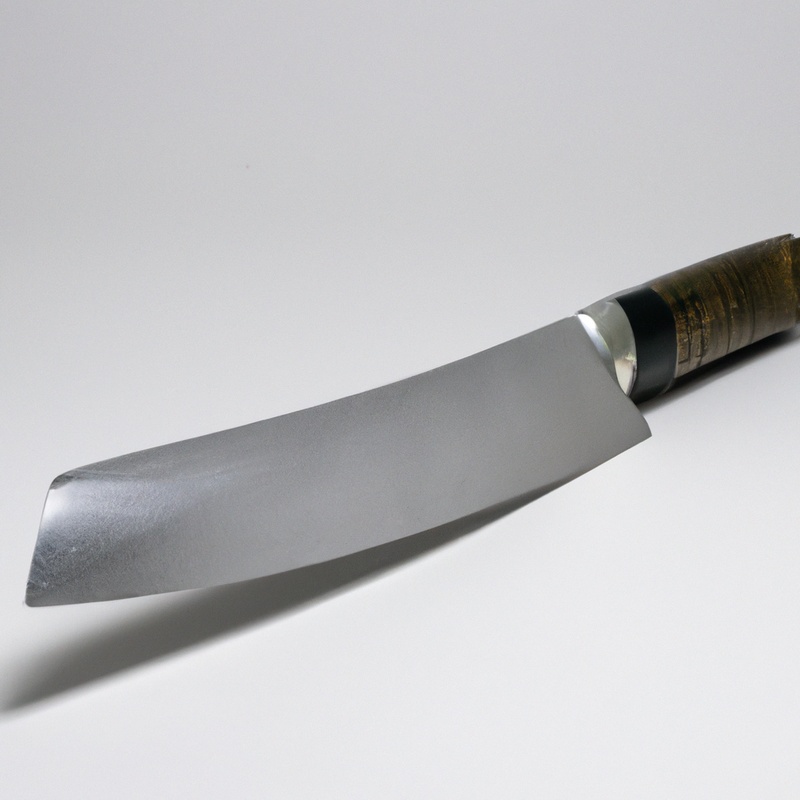
The consequences of not preventing cross-contamination and the importance of taking it seriously
Not preventing cross-contamination can lead to foodborne illnesses. The Centers for Disease Control and Prevention reports that every year, one in six Americans gets sick due to contaminated food.
Cross-contamination is one of the main causes of foodborne illness.
This is because harmful bacteria can spread from contaminated food to clean food, utensils, and surfaces. It only takes a small amount of bacteria to cause an illness.
Symptoms can range from mild stomach upset to severe illness or even death.
Therefore, it is important to take cross-contamination seriously and follow proper handling and cleaning techniques when using a Gyuto knife in the kitchen.
Final Verdict
The importance of preventing cross-contamination while using a Gyuto knife cannot be overstated. By following proper handling and cleaning techniques, using separate cutting boards, maintaining a clean workspace, and implementing protective gear, you can significantly reduce the risk of contamination.
Remember to sharpen or replace your knife when necessary and properly store it to keep it clean and ready to use.
In professional kitchens, training employees on preventing cross-contamination is crucial to ensuring the safety of customers. Neglecting to take cross-contamination seriously can have severe consequences for everyone involved.
By implementing these strategies, you can build trust and confidence in your food production and ensure the safety of those who consume it.

